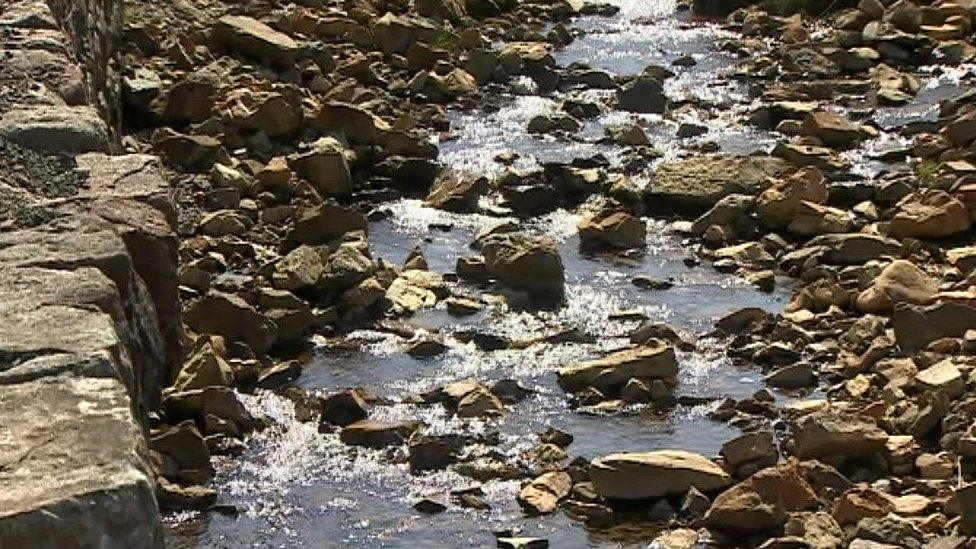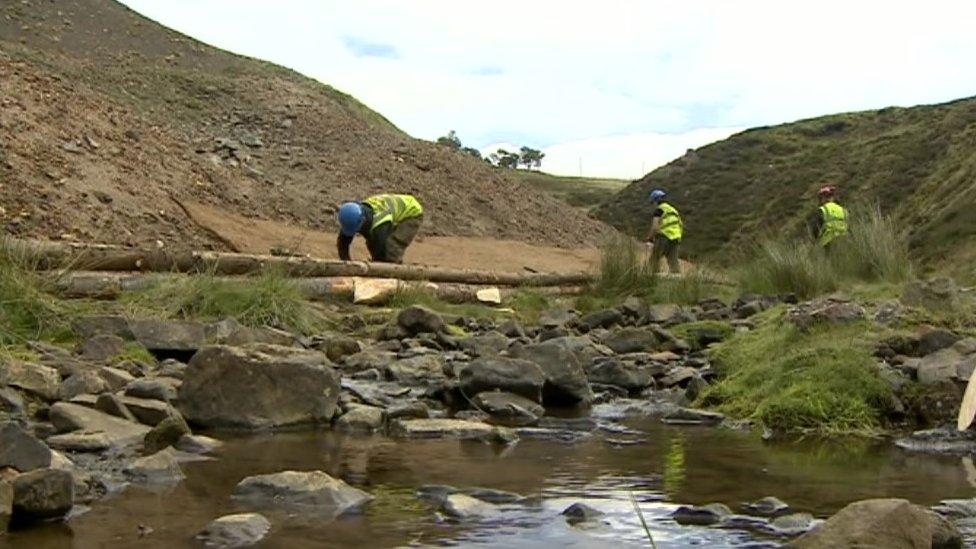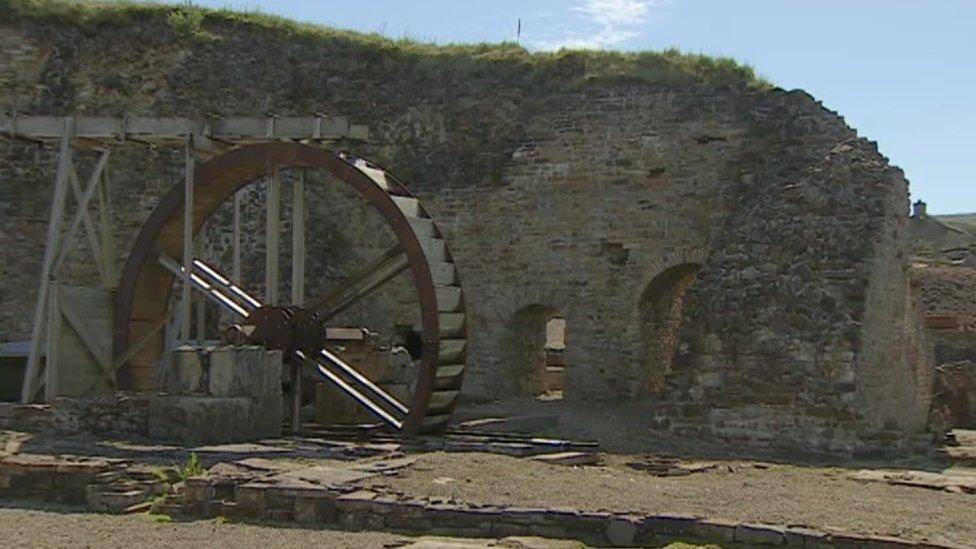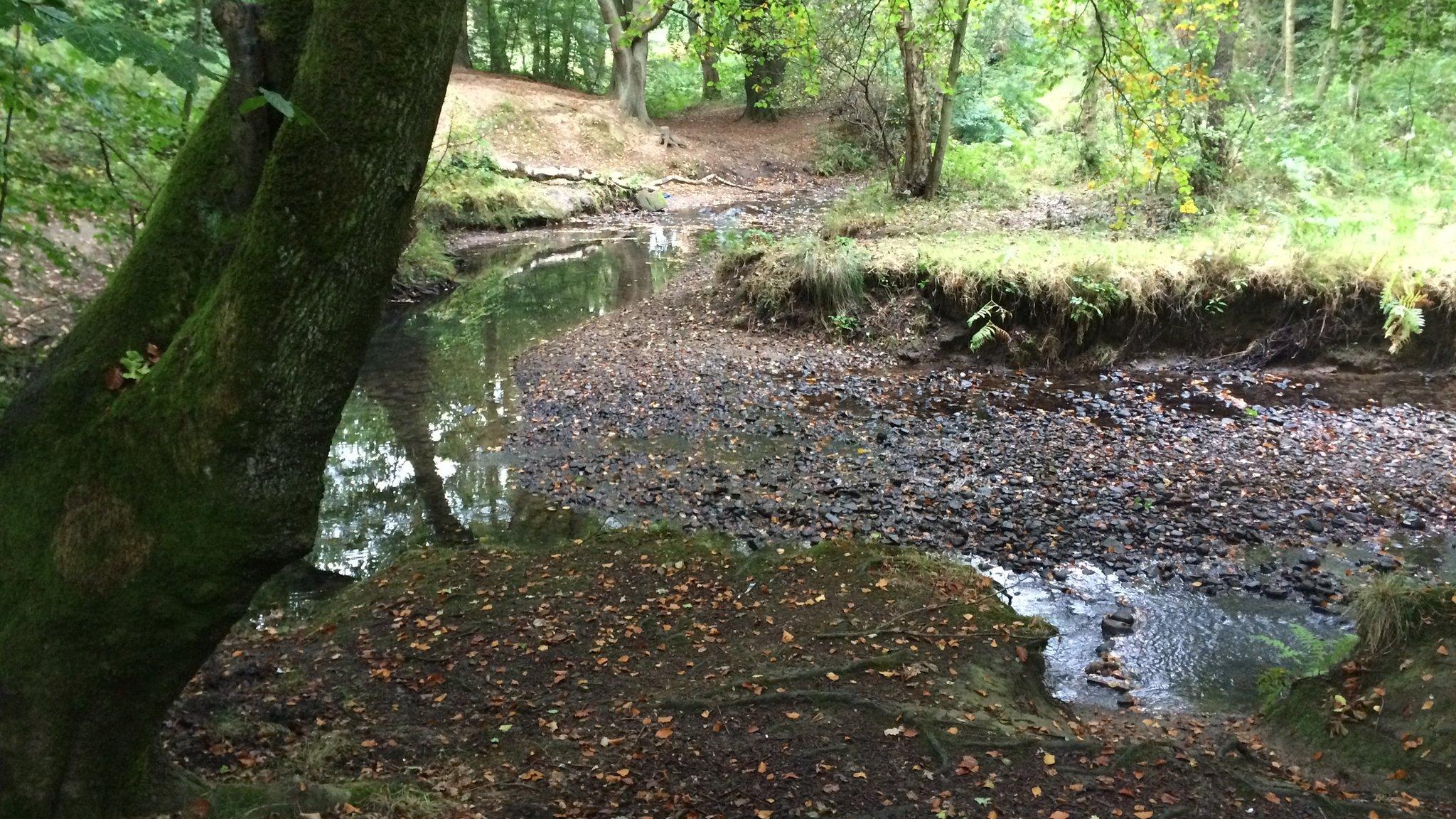River Nent to undergo £6m clean up of mine metals
- Published

The river is polluted with metals from an old, flooded mine
Work has started on a £6m clean-up of a river in Cumbria polluted by mining activity.
The River Nent is one of the most polluted in England with flood water containing silver and lead from the former Nenthead mine near Alston.
The Department for Environment, Food and Rural Affairs (Defra) has begun work on a pumping station that will serve a new treatment works.
A Defra spokesman said it would improve water quality and protect wildlife.
The river contains high levels of cadmium, lead and zinc which are toxic to fish and the insects they feed on.

It will take two years to build water treatment works at the site
The treatment works are expected to take two years to construct, and the first stage is the building of a pumping station near Nentsberry.
The second stage is three treatment ponds containing straw, limestone and wood chippings, and a new Wetland at West Foreshield,
These will remove meals from the mine water, which can then be returned to the river.

Flood water from the old Nenthead mine is polluting the river with toxic metals
A spokesman for Defra said: "Although almost all the mines had been closed by the early 20th Century, they have since flooded and polluted water continues to pour out of the ground and will do so for hundreds of years without government action.
"The effect on water quality and aquatic life can be seen for 60km along the River South Tyne, with the metals ultimately accumulating in the River Tyne estuary sediments.
"This will help deliver economic and environmental benefits for many years to come."
- Published19 November 2016
